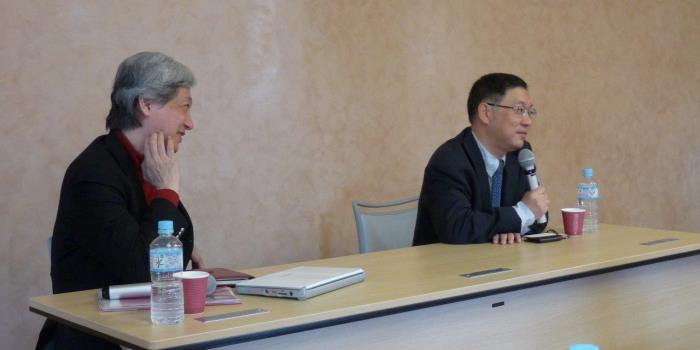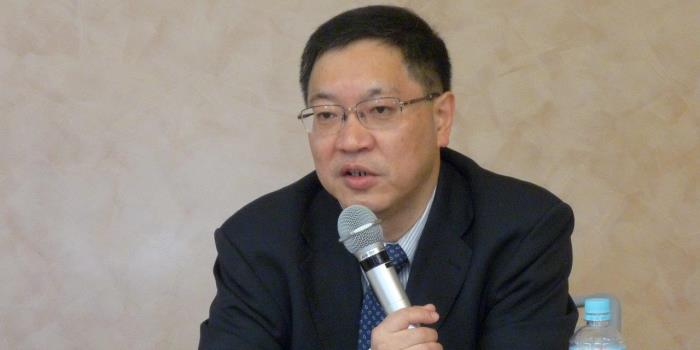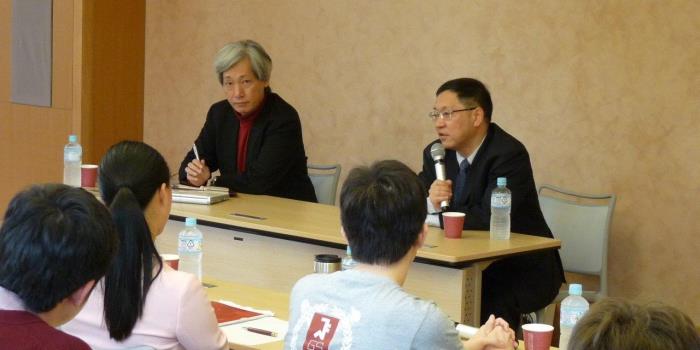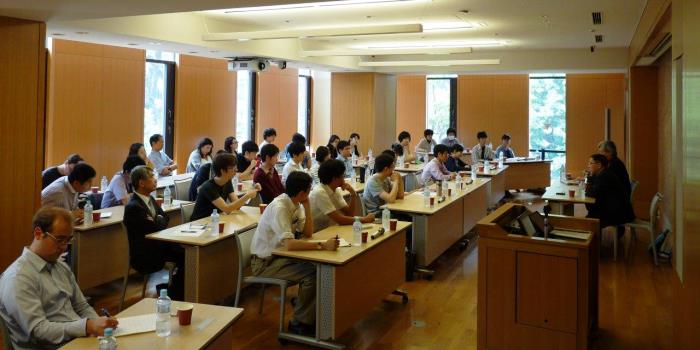SSU Forum with Professor Dingli Shen
| Date: | Wednesday, May 14, 2014, 10:30-12:00 |
|---|---|
| Venue: | Seminar Room, 3rd Floor, Ito International Research Center |
| Subject: | Improving Sino-Japanese Relations |
| Lecture: | Professor Dingli Shen, Vice Dean of the Insitute of International Affairs, Fudan University (Shanghai) |
| Language: | English |
| Hosted by: | Security Studies Unit, Policy Alternatives Research Institute, the University of Tokyo |
Professor Dingli Shen, Associate Dean of the Institute of International Studies at the Fudan University in Shanghai, was the distinguished speaker of the SSU Forum taking place on 14th May 2014, and entitled “Improving Sino-Japanese Relations”.

SSU Director Professor Kiichi Fujiwara chaired the Forum, and introduced the guest by highlighting his numerous intellectual contributions in several sub-fields of International Relations studies, from arms control to Chinese foreign policy.
Professor Shen opened his talk by thanking the host and by describing his own current commitments as academic and public intellectual in China. Professor Shen has then articulated his view on the China-Japan relations and on possible ways to improve them largely based on a return to more traditional ways of understanding first and foremost China’s role in the light of Confucianist teachings. He has recalled the outstanding history of positive interactions between China and Japan, whereby the roles of teacher and student have been swapped several times in the course of the centuries. So, while in ancient times China greatly influenced Japanese culture, in the more recent historical period Japan has acted as a cultural mediator between Western modernisation and traditional Asian cultural context, a mediation from which China has greatly profited.

Against this background, Professor Shen argued, the current lack of cooperation between the two countries is very unfortunate; this situation may not display any significant improvement unless a change in the style of leadership occurs, coupled with a cultural shift in the very perception of this political setting, including the re-assessment of nationalism’s role in domestic and international affairs.
The need for a shift in the dominant political culture of both countries lies at the core of the two most pressing issues in Sino-Japanese relations, namely Beijing’s territorial claim on the Tokyo-administered Senkaku islands, and the controversy surrounding historical memories and their interpretation. On the first point, Professor Shen stressed the importance of establishing mechanisms preventing the accidental military escalation of violence, even adopting the de-militarisation of the area. Secondly, it highlighted the necessity of dialogue and of pursuing a diplomatic negotiation, even by means of working with a neutral third party as a mediator.

The second point, concerning historical memories, may also require a significant re-elaboration of the ways in which history is perceived in both countries. On the one hand, the narrative of Japanese atrocities in China has to be backed by a more systematic and accurate collection of irrefutable evidence, which may no longer be subjected to speculations aiming at their dismissal. On the other, the Japanese have to make an effort in understanding the symbolic values of certain gestures in relation to past events, consequently acting more carefully when such symbols are used for political purposes, and assuming a posture more inclined to the offering of sincere apologies.
Professor Shen made the point that Confucianism in its dimensions of magnanimity, generosity, devotion to learning and the cultivation of human relations is the best, and possibly only way, to improve the currently dominant political culture, thus promoting an authentic change in international politics, and specifically in Sino-Japanese relations.

-
Vice Dean of the Insitute of International Affairs, Fudan University
